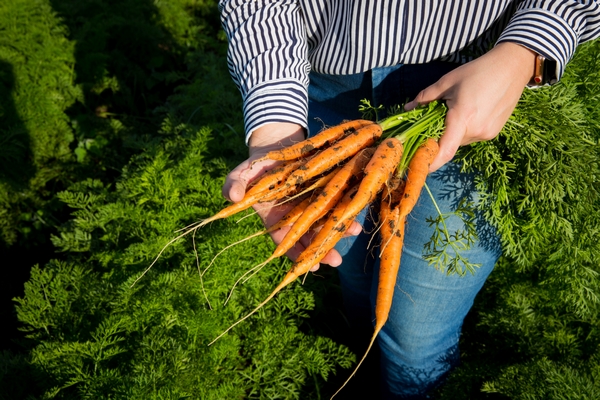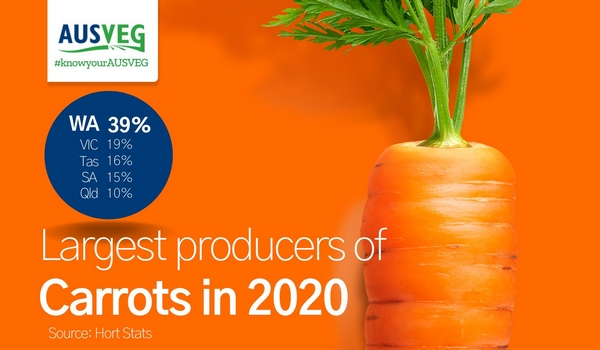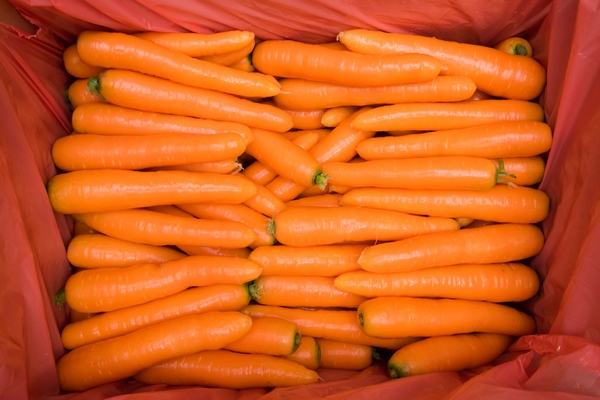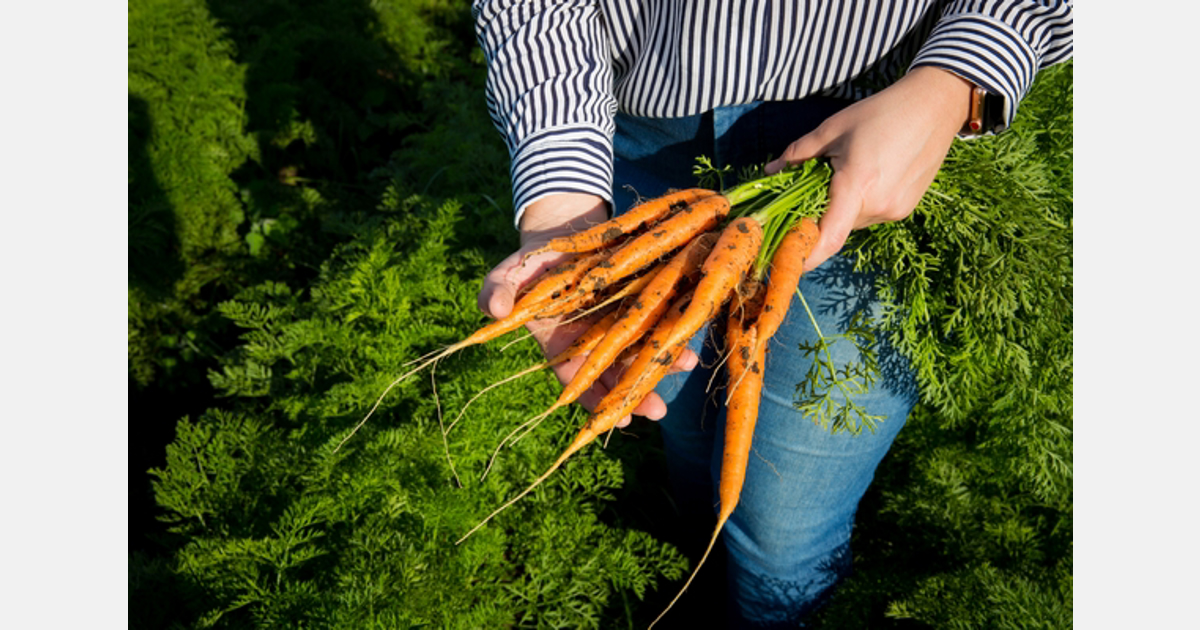Australian carrot growers grew enough of the vegetable to fill 330 Olympic-sized swimming pools, with 335,000 tonnes produced nationwide, according to Australia’s peak vegetable body.
AUSVEG CEO Michael Coote says demand for carrots, as well as other versatile vegetables with longer shelf lives, surged during the pandemic in Australia as customers were shopping less often and carrots were considered an economic, versatile option with a longer shelf life compared with other vegetable products.
“Australian carrots are known around the world for their high quality and sweet flavour,” Mr Coote said. “Australian growers have worked for many years to develop good relationships with key trading partners in the Middle East and across Asia, which has led to increased demand from consumers in these markets for Australian carrots. Carrots are a staple in many cuisines and their taste, texture and versatility make them a staple ingredient in many breakfast, lunch, dinner, salads and for snacking.”
Nationally, the carrot production reached an impressive $256million farmgate value and Mr Coote says Australian carrots are known around the world for their high quality and reliable 52-week supply. He added that Australian growers have worked for many years to develop good relationships with key trading partners in the Middle East and across Asia.
“Carrots have consistently been a strong performer for the vegetable industry in both domestic and export markets,” he said. “Carrots are a popular vegetable with Australian consumers due to its taste, texture and its versatility that makes it popular across many different cuisines in many different meal occasions.”
Export wise, he noted that the value of Australian carrots reached $100million. The vegetable makes up over one-third of all Australian fresh vegetable exports by value, and Mr Coote says this is a significant achievement for growers given the high-volume export trade of carrots in a highly cost competitive global carrot market.
“The growth of the Australian carrot export market to reach $100 million is a testament to the industry’s increasing export focus and the hard work and determination of Australian carrot growers to supply high-quality products in an increasingly competitive global marketplace,” Mr Coote said. “The industry’s latest export strategy highlights consolidating core markets in Asia and the Middle East and driving growth through targeted market and channel opportunities in emerging and frontier markets as strong opportunities for growing Australian vegetable exports, including carrots. The strategy has set targets of achieving $300 million of export value by 2023 and $400 million by 2025, reflecting the challenges and opportunities arising from the COVID-19 pandemic, which are likely to endure for a number of years. The carrot industry will be a key contributor to the ongoing growth of Australian vegetable exports.”
While the carrot industry benefits from different vegetable research and development projects, Mr Coote says many carrot growers are involved in various industry export development projects, either funded by Hort Innovation and delivered by AUSVEG, or by the State Governments.
“These projects boost the capabilities, networks and confidence for growers to export carrots and other vegetables to key international markets,” he said. “Increasing carrot exports through these programs also moves supply from the domestic market, which helps avoid oversupply for growers who supply the domestic market.”
Veg industry’s campaign to help Aussies ‘know your AUSVEG’
AUSVEG, is working to educate the public on the Australian vegetable and potato industries, using social media to raise awareness of the vegetable and potato sector’s hard-working growers and the substantial contribution that the industry makes for the national economy, the livelihoods of its workers and the health and wellbeing of every Australian.
The peak industry body for vegetable and potato growers will be posting across Facebook, Instagram, Twitter and LinkedIn to highlight the significant contributions of the vegetable industry encouraging industry and the broader public to “#knowyourAUSVEG“.
“The vegetable industry should be considered one of strongest performers of Australia’s agriculture industry given its growing value of production, its prominence in retail and market settings across the country and its rising exporting presence,” AUSVEG National Manager – Communications Shaun Lindhe said. “The vegetable industry is a highly technical, advanced and growing sector. It is a major contributor to agricultural employment and provides economic benefits to all businesses throughout the agricultural supply chain – it is the lifeblood of many regional and rural communities that rely on a thriving agriculture sector.
Vegetables are the biggest sector in the Australian horticulture industry with a farmgate value of nearly $5 billion, which according to ABARES data is larger than a number of other agriculture sectors, including most domestic meat markets (except cattle and calves), all fisheries and forestry industries, all pulses and oilseed crops, and is comparable to our milk and the combined fruit and nut industry.
“The vast majority of vegetables that are sold in Australia are grown in Australia,” Mr Lindhe said. “This tremendous effort is possible because of the hard work and determination of our vegetable growers and the support from the broader supply chain to assist in the supply of vegetables for Australian and international consumers.” For more information
For more information
Michael Coote
AUSVEG
Phone: +61 3 9882 0277
info@ausveg.com.au
www.ausveg.com.au
Publication date: Thu 2 Dec 2021
Author: Matt Russell
© FreshPlaza.com
We require you to complete all the text fields marked with *.
Receive the daily newsletter in your email for free | Click here
Other news in this sector:
<< Back | FreshPlaza.com





© FreshPlaza.com 2021
Sign up for our daily Newsletter and stay up to date with all the latest news!
You are receiving this pop-up because this is the first time you are visiting our site. If you keep getting this message, please enable cookies in your browser.




